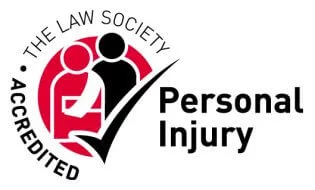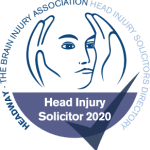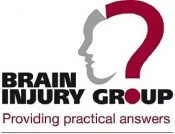Back Injury at Work Claims
Injured Back at Work Claim
Employers have a legal duty to keep their employees safe at work. You can claim compensation for a back injury at work if it was caused by your employer's negligence.
Back Injury at Work Solicitors
Back injury is the most common type of work-related injury in the UK. It occurs in over half of all accidents in the workplace and accounts for nearly 120 million lost work days every year.
The most common causes of back injuries at work are falls from height, slips and trips and carrying heavy objects which can put significant strain on the back. Back injuries can occur in a wide range of occupations, from warehouse and construction jobs to desk-based roles that involve poor posture.
The Health and Safety at Work Act 1974 makes it an employer’s responsibility to keep their employees safe in the workplace. If an employer fails in their duty, you may be eligible to make a back injury compensation claim.
You have the right to make a claim regardless of whether you have a full-time, part-time or zero-hours contract, or you are a contractor.
What are the laws about back injuries at work?
Aside from the Health and Safety at Work Act 1974, there are other pieces of legislation that are designed to keep you safe at work.
These include the Manual Handling Operations Regulations 1992 which affects employees with physical jobs, and the Work at Height Regulations 2005 which applies to any work carried out at height where there is a risk of a fall, for example, at a construction site.
All of these laws and regulations require employers to take reasonable care of their employees’s safety at work. Some also give specific guidance on how certain types of work should be carried out, for example, by specifying the type of harnesses and fall arrest systems that should be used when using scaffolding.
In terms of back injuries, the duty to keep you safe covers:
- Acute accidents at work, such as slips, falls or a forklift accident, and
- Back injuries that develop from prolonged exposure to poor working conditions. For example, repetitive tasks, inadequate seating or continuously lifting heavy items without proper equipment or training can all result in chronic back problems.
Is my employer liable for my back injury at work?
It’s important to understand that employers are not required to prevent all accidents from occurring—that would be impossible. However, they must take reasonable steps to ensure that their employees are not exposed to unnecessary risks.
Some of the ways they might do this include:
- Providing sufficient training on the correct techniques for lifting and handling heavy objects to minimise the risk of injury.
- Providing desk chairs that ensure proper lumbar support and desks that are at the correct height.
- Allowing employees regular breaks to move around and alleviate the strain caused by prolonged periods of inactivity or repetitive movements.
- Providing appropriate equipment such as personal protective equipment, forklifts, trolleys, harnesses and other lifting aids to reduce the risk of back injuries.
- Limiting the use of ladders to short-duration, low-risk activities.
- Keeping workplace floors clean, dry and clear of obstacles to reduce the risk of slips, trips or falls.
- Implementing a system for reporting injuries and addressing those issues promptly to prevent further incidents.
In general, the employer will be liable for your back injury if it can be shown that they failed to take reasonable steps to keep you safe and thus breached their duty of care.
Employers must carry insurance to protect against the cost of accidents. The back injury at work compensation claim will be made against the employer, but the insurance policy will pay out any compensation owed.
Can I claim if I am partly responsible for my back injury?
In many cases, you will be able to claim for a back injury at work even if you were partly to blame.
For example, if your employer provided training on how to lift a heavy object correctly but you chose not to follow those instructions, the principle of ‘contributory negligence’ would apply. This means that you can still make a claim, but the amount of compensation awarded may be reduced to reflect your own responsibility.
For example, if you were 25% at fault, then you would receive 75% of the total compensation awarded.
Our specialist accident at work solicitors can help determine whether your employer is at fault for your back injury and advise on the likelihood of a successful claim.
What are some common types of back injuries at work?
Back injuries at work are quite diverse, with different types of injuries often linked to specific work incidents. Here are some common types:
- Herniated discs: These often occur due to twisting while lifting or pushing heavy loads, and are especially common in jobs involving manual labour or warehousing.
- Muscle sprains and strains: Office workers, nurses and assembly line workers are particularly at risk of muscle strains and sprains as a result of repetitive motion or poor posture over a prolonged period.
- Fractured vertebrae: Usually the result of traumatic incidents like slip and fall accidents, falls from height or being struck by moving objects, fractures are relatively common injuries in construction or factory settings.
- Spondylolisthesis: This condition, where a vertebra slips out of place, can be caused by repetitive trauma or overuse and is common in physical jobs.
- Chronic lower back pain: This can result from a range of factors, including repetitive lifting, prolonged sitting or poor ergonomics at a workstation. It is a common complaint among office workers, drivers and manual workers.
- Spinal cord injuries: These severe and life-changing injuries may be caused by falls from height, such as in construction or maintenance jobs involving working on ladders or scaffolding.
Even minor back injuries can cause significant pain, restrict movement and lead to substantial time off work. Damages could be significant, depending on the seriousness of the injury and the long-term impact.
Average payout for back injury at work
There is no one-size-fits-all. Compensation amounts will depend on the severity of your back injury and the effect it has on your life. Factors such as the time you are unable to work and changes to your lifestyle will be taken into account when determining the amount of compensation you are entitled to.
Compensation falls into two categories: general damages and special damages.
General damages
Compensation for the physical and psychological effects of a back injury is called general damages. Amounts vary greatly depending on how much pain you have gone through, how long you have suffered for, and how much the injury has interfered with your life.
The Judicial College, a department of the Ministry of Justice, recommends general damages amounts for specific types of back injuries. According to the College, the typical range of general damages for back injuries is:
- Minor back injury, eg muscle tears, soft tissue damage or slipped disc that heals within two years and does not require surgery – up to £12,510
- Moderate back injury eg ligament damage that causes constant pain in the back – £120,510 to £38,780
- Serious back injury eg injuries that permanently restrict mobility, all the way through to paralysis – £38,780 and £160,980
The most serious back injuries are spinal injuries and spinal cord injuries. These types of injuries are life-altering and require many years of care, rehabilitation and treatment. As such, they have their own tariff of compensation, which you can read about on our spinal injuries page.
Special damages
In addition, you can claim for out-of-pocket expenses and financial losses that are related to your back injury. These are known as special damages and can include:
- Loss of earnings, overtime and bonus payments while you recover from your injury
- Future loss of earnings if you are unable to return to work or have a reduced earning capacity due to your back injury
- Costs for medical treatment, including surgeries, physiotherapy, medication and rehabilitation
- Travel expenses for attending appointments relate to your back injury
- Expenses for necessary medical aids and equipment, such as a back brace or an ergonomic chair for work.
At Osbornes Law, we go above and beyond to ensure that our clients receive the maximum amount of compensation possible for their back injuries. We will arrange for you to see an independent medical specialist as part of your claim.
A medical report is extremely useful because it shows how severe your injuries are and the chances of your injury flaring up in the future. We use it to provide substance for a fair compensation claim, especially when claiming for anticipated future expenses.
How long do I have to make a claim for a back injury at work?
Legally speaking, you have three years to start a claim from the date of the accident or from when you became aware that your back injury was related to your job.
In real life, though, it is best to contact a personal injury solicitor as soon as possible after the incident or diagnosis. Back injury at work claims take time to investigate and prepare. Your solicitor may have to dig through serial numbers and maintenance records for safety equipment or log books of when training materials were updated to show that your employer was negligent.
Many solicitors will not take on cases that are close to the three-year deadline because of the time it takes to get the claim to court. You could lose out on compensation that you are legally entitled to if you wait too long to make a claim.
Is a personal injury claim the same as a health and safety investigation?
Employers have a duty to record workplace accidents in an accident book and investigate what went wrong.
For serious accidents, your employer should report the matter to the Health and Safety Executive, which may launch an investigation.
While these investigations can be useful when pursuing a personal injury claim, they are not equivalent activities. You can make a back injury claim regardless of whether your employer has already carried out an investigation or not.
Why choose Osbornes Law for your claim?
If you have suffered from a back injury at work, our legal experts are here to help. Osbornes Law are specialists in this field. With over 50 years of experience, we’ll work to get you the best possible outcome for your back injury claim.
Our legal team is recognised by independent bodies such as Chambers & Partners and the Legal 500 as a leading law firm for personal injury claims, so you can trust us to handle your case with expertise and professionalism. However, while these recommendations are incredibly important to us, we are more proud of our “Excellent” rating on Trustpilot. The incredible feedback we receive from our clients is testament to our commitment to providing the best possible service and results for each individual case.
Most back injury at work claims can be dealt with on a no win, no fee basis for added peace of mind. No win, no fee means you won’t have to worry about any legal fees unless we successfully secure compensation for you. This allows everyone access to justice, regardless of their financial situation.
Our Personal Injury Team View the whole team
Rob Aylott
 Partner
Partner
Personal Injury SolicitorsSam Collard
 Partner
Partner
Personal Injury SolicitorsSophie Davies
 Partner
Partner
Personal Injury SolicitorsLaura Swaine
 Partner
Partner
Personal Injury SolicitorsNicola Hall
 Senior Associate
Senior Associate
Personal Injury SolicitorsAndrew Middlehurst
 Senior Associate
Senior Associate
Personal Injury SolicitorsView the
whole team










